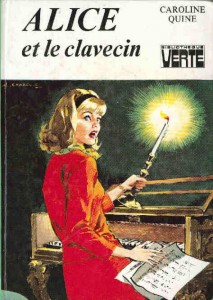 Think of Provence – and what comes to mind? Fields of lavender, groves of olive trees, terracotta tile roofs, a steaming pot of bouillabaisse, a glass of chilled rosé, the mistral blowing. (You get the idea.) That said, I’m pretty certain my own experience in the picturesque small Luberon village to which I’ve been coming for 35 years is rare. My destination, hidden behind a high wall with a locked gate conceals, I must confess . . . pure murder and mayhem.
Think of Provence – and what comes to mind? Fields of lavender, groves of olive trees, terracotta tile roofs, a steaming pot of bouillabaisse, a glass of chilled rosé, the mistral blowing. (You get the idea.) That said, I’m pretty certain my own experience in the picturesque small Luberon village to which I’ve been coming for 35 years is rare. My destination, hidden behind a high wall with a locked gate conceals, I must confess . . . pure murder and mayhem.
Peter May, in other words, not Peter Mayle.
“How’d you get started on your mystery reading?” I ask my friend Claudine Peyre, now retired after nearly 40 years of teaching middle-school English. Her collection, double-shelved and occasionally even triple, runs along the high, bookcase-lined walls of two landings in her large, traditional 19th-century house with its light blue shutters and lacy curtains in every window. The books are mostly in English and mostly in hardcover. Browsing, you’ll see the latest Jeffery Deaver, the newest Patsy Cornwell, the most recent Jonathan Kellerman, the just-released Dana Stabenow, the hot-off-the-press Jo Nesbø or Camilla Lackberg, every Lee Child.
Here, too, the entire of Anne Perry, John Grisham, Minette Walters, Mary Higgins Clark, Tess Gerritsen, Paul Doherty, Janet Evanovich, both Frenches (Tana and Nicci), Lindsey Davis, Elizabeth Peters, Harlan Coben, Sue Grafton, Lillian Jackson Braun, Scott Turow, M.C Beaton, and Sara Paretsky can be found. And those, just for starters. I could mention, too, the complete works of Agatha Christie in paperback (with a bunch in French, including an edition of Dix petits nègres, which retains that title to this day) and Ngaio Marsh (a number of these are in French, too, such as Meurtre en coulisses and Un vrai crime d’artiste).
“When I was 14,” remembers Claudine, “I came down with mono, and back then, long bed rest was enforced. The books I discovered that helped me while away the hours were the ones featuring ‘Alice Roy, jeune détective amateur.’” She laughs. “It was only many years later I realized ‘Alice’ was Nancy Drew – in translation!”
After that, she explains – the same, of course, proved true for many of us, whether we started with Nancy, George and Bess, or Frank and Joe Hardy [me, I read both] – it was but a short leap to Sherlock Holmes. “I was 16 by this time, and my father had a volume of the stories in French in a handsome edition.”
At the age of 18, after graduating from her lycée in Marseille, Claudine participated in the AFS exchange program, very happily passing an entire school year with a family in Cedar Grove, New Jersey. Once back in France, she spent 4 years studying for her master’s at the Université d’Aix en Provence, writing her thesis on “The Beat Generation.” After that, she began her teaching career. “I’d say, during this period, I was reading a lot of Highsmith and Rendell.” However, soon enough, her natural bent to eclecticism took over.
Before the Internet – and soon, Amazon – reduced the wear and tear of buying foreign titles for an avid French mystery reader as enthusiastic (and dedicated) as Claudine, her library grew with the aid of a great deal of heavy lifting: her husband and two children would help lug back bags of new titles each time the family visited England – usually, when Maman was starting to run short of fresh escapist entertainment.
“I don’t much like French crime fiction,” she says, shrugging. “I’m not sure why, exactly. I know I read mysteries for the fun of it, but they also need to ‘bring something to me.’ Historical settings do this, and so, generally, do les romans policiers étrangers. I like reading about distant places, especially ones where I may never get to go. For example, whenever I finish a Stabenow, I think I’d like to be like Kate Shugak. Maybe only for a year – living on a remote tract of land with only my books and music.”
She adds with some vehemence: “I don’t enjoy true crime at all. I don’t care for the link to reality. There’s no possibility of there being for me, in those, any ‘escape’ value.” Stopping to think a bit more, she explains, “I’m a very non-violent person.” (Which paradoxical notion, when it comes to genre writers and readers, is a familiar one.)
Still, for anyone reading and interested in at least one French thriller recommendation by Claudine, she does praise the prolific Franck Thilliez’s novel, Puzzle (2013); alas, it hasn’t yet been translated. However, two of his books are available in English, both from Viking: Syndrome E (2012) and Bred to Kill (2015).
I should mention, just for the record, that I knew nothing about Claudine’s reading habits when I first met her, back in 1980.
–Michele Slung
Michele Slung is a longtime mystery editor, reviewer, and anthologist. She has been a member of MWA for many years.
